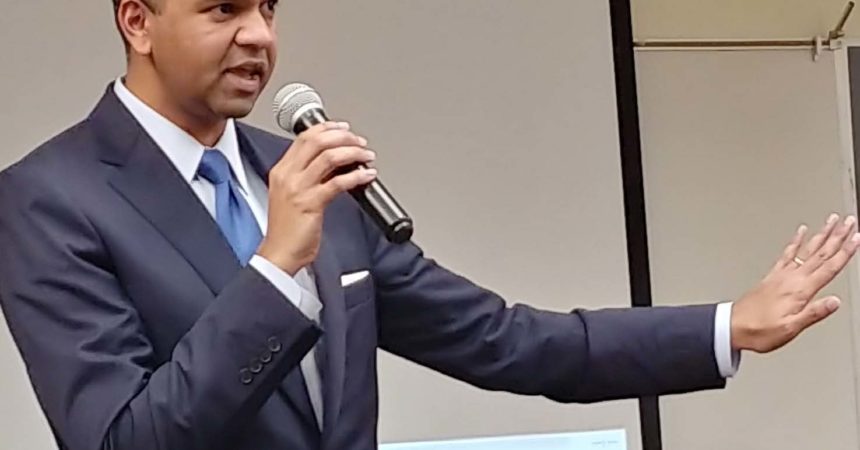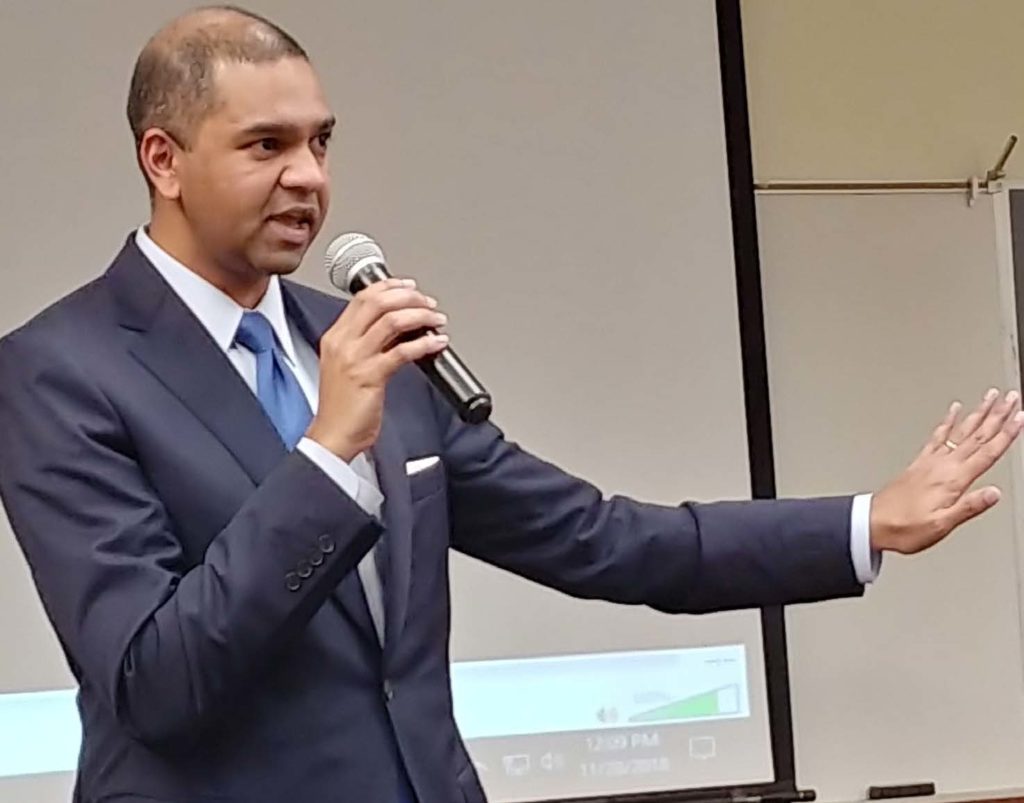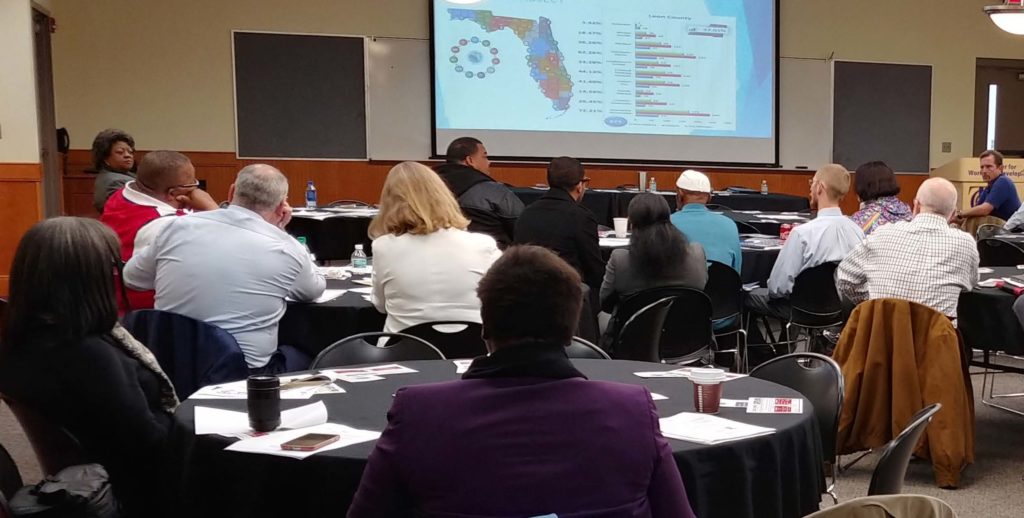
Symposium sheds light on re-entry issues facing ex-felons

Vikrant P. Reddy makes a point about some of the issues that challenge ex-felons making a re-entry to their communities.
Photo by St. Clair Murraine
By St. Clair Murraine
Outlook staff writer
Several ex-felons in the audience brought reality to the conversation during a question and answer session that followed Vikrant P. Reddy’s methodical outline of philosophies and practices that affect the re-entry process for people who have served their prison sentences.
Reddy, Senior Research Fellow at Charles Koch Institute, pointed out several faults with ways that ex-felons are prepared for their eventual release. Many in the audience pointed to a lack of vocational training, education and drug rehabilitation as part of the problems they face when they return to their communities.
Reddy agreed, pointing to the lack of employment readiness as one of the biggest issues facing ex-felons.
“Absolutely,” he said. “There has to be a lot more work done behind bars on getting people trained with the right education; the right skills.
“Job training is so important. It is the number one factor whether or not people recidivate when they come out from behind bars. It’s also important to get people the necessary drug treatment; medical health treatment.”
Professionals in all of those areas participated in a two-day symposium a week ago, focusing on “enhancing re-entry partnerships.” The event held at TCC’s Center for Workforce Development was attended by several re-entry stakeholders such as Bethel’s Ready 4 Work, Leon County Sheriff and Department of Corrections personnel.
The symposium was the brainchild of Keith Parker, a professor of sociology and criminal justice at FAMU. Parker said the event is necessary to shed light on issues that lead to recidivism.
Parker said the end goal is to form a focus group to compile solutions through Ready 4 Work, a re-entry program run by Bethel Missionary Baptist Church.
Florida releases just over 30,000 prisoners annually, according to the state’s corrections department. Many of them face almost all of the issues that Reddy spoke on.

A two-day symposium on re-entry drew a mixed audience of criminal justice professionals and formerly incarcerated people.
Photo by St. Clair Murraine
“I think it’s very important for the community to engage in a symposium like this because 95 percent of people who are placed on supervision, people who are incarcerated are going to be released and they are going to be released into our communities,” said Matthew Sampson, a DOC Circuit 2 Administrator. “It’s very important that every entity get on board because guidance is needed.
“If you’ve been locked up for five to 10 years, you have nothing, especially if you don’t have family. We want to provide them with guidance.”
Reddy, who titled his speech “how to talk to your conservative friend about criminal justice,” delved into three main areas affecting re-entry – public safety, money, and human dignity.
On the issue of public safety, Reddy said that putting people behind bars isn’t the absolute answer. He also suggested that re-entry might be more effective if preparation for prisoners’ release begin the day they start to serve their time.
“There is an impression among a lot of people that in order have a safe and secure society that what you’ve got to do is lock people up,” he said. “Put them away; get the bad guys off the streets and we are all going to be safe.”
However, he said such an approach is a misguided way to think when someone does something “knuckleheaded (or) bad things.”
“Prisons are like graduate school for criminals,” he added. “You send some of these folks away and they’d come out worst than they started and we will have created that problem.”
At one point during the question and answer session, an ex-felon talked about “technical violations” that often lead to loss of time a prisoner earned for an early release.
Even in cases of probation, a former prisoner could have a difficult time with the process, more than one ex-felon in the audience attest. Reddy referred to that as an old practice to “trail them, nail them and bust them” to put someone back in prison.
In some cases, Reddy said, the difference between prison and probation is an area in criminal justice that needs another look. Locking someone up at a higher price than probation “is irresponsible and reckless,” he said.
“You can find a way to create effective probation programs and safely monitor people in communities,” he said. “They can stay with their families, maintain jobs and do all those things that we want to keep them productive.”
Human dignity should be a part of the ongoing debate over criminal justice reforms, Reddy said. The mindset that family and community are core to the America ideal is good; however, there is the questioned of what happens in neighborhoods that have one third of the fathers behind bars, Reddy said.
Usually the fallout is devastating, research has shown.
“If you’ve got a kid who has got a parent behind bars; that child’s likelihood of graduating from high school is lower; that child’s likelihood of becoming pregnant as a teenager is higher; that kid’s likelihood of using drugs is higher; and that kid’s likelihood of some day ending up in prison is much, much higher.”







